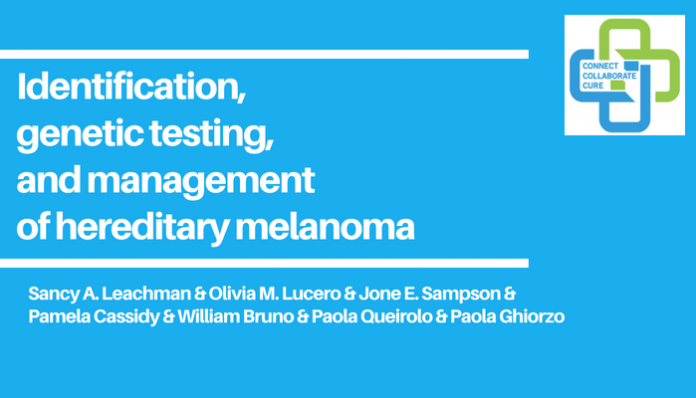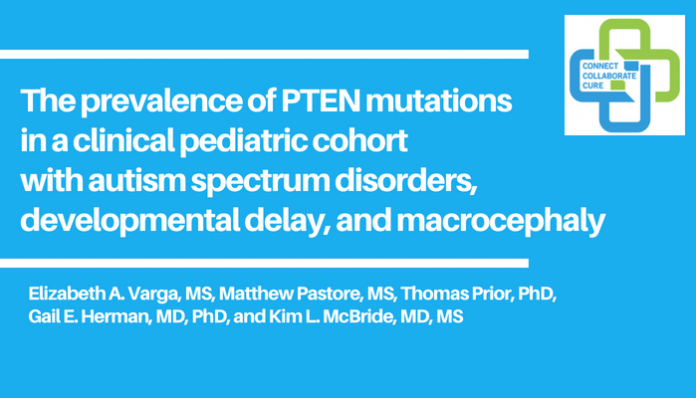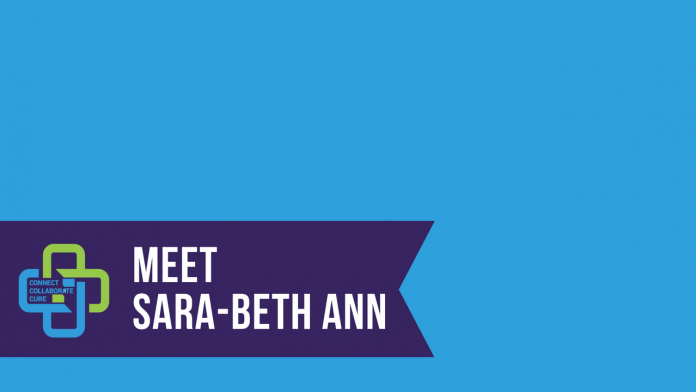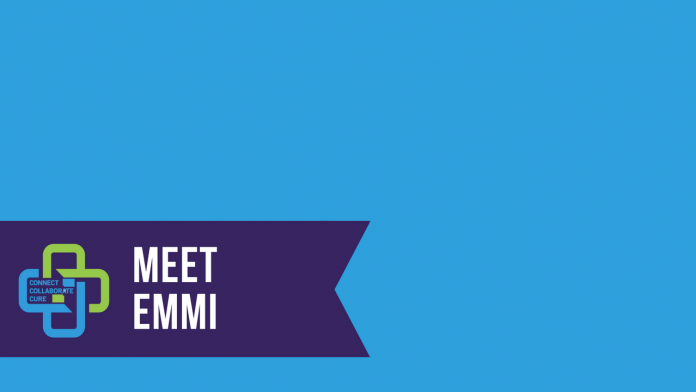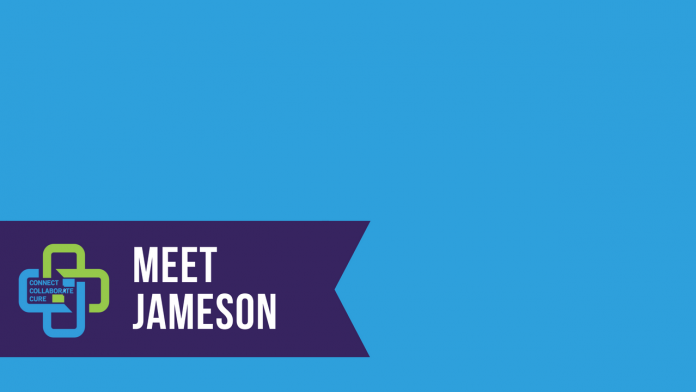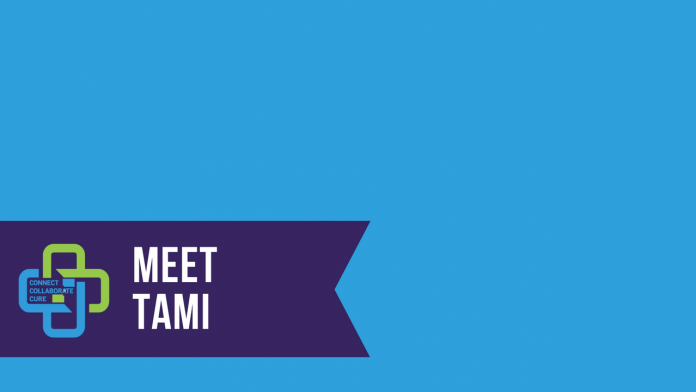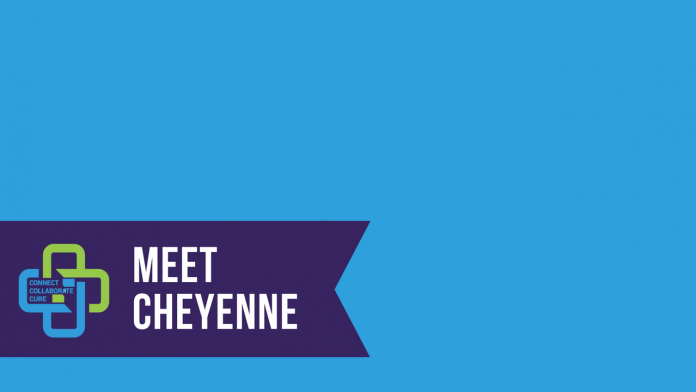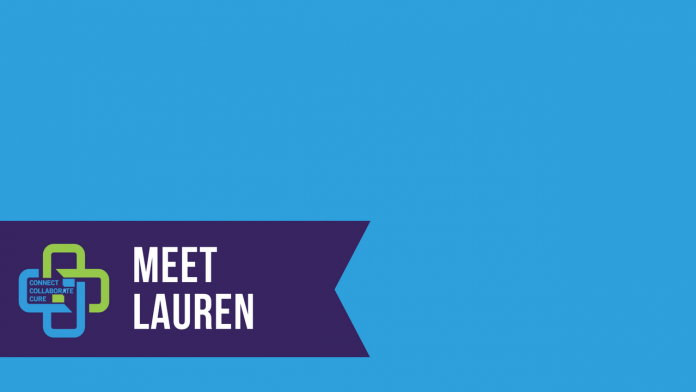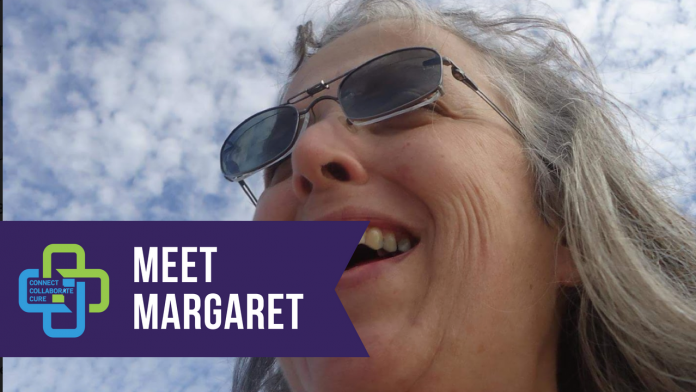Meet SARA-BETH ANN
I want to introduce you to the most Sweetest Little Angel in the world…Her name is        Sara-Beth, and when I say Angel I mean just that. July 11, 2006 God sent me the most beautiful baby in the world. Not realizing it then but we were about to embark on a whole new adventure we were not ready for. She was ready to make her grand entrance into this world, by one hand at a time… She started into this world by her right hand, then shoulder and head…  At 5 minutes old she rushed for her 1st MRI. Once they came back and said everything was ok, that she was just bruise and swollen from the delivery, my heart was so happy…. All I could say was Thank you Lord for a healthy beautiful little girl…
Our World was turned upside down:
At 2 weeks old I noticed that she could not use the bathroom we took her for the check up and her doctor sent her to the hospital to get an x-ray done. She has stool and air stuck in her system. We went home with some medicine to try and help her go to the bathroom.  We even try the old remedy. But nothing would help her go. Secondly we started noticing that her belly was getting bigger and hard.
From 1-month-old 1 ½ years old she was in and out of the hospital and to the Primary Doctor, that everyone knew us… I was like a routine go in the hospital just hooked up on medication and breathing treatment she would get and projectile vomiting. We would take 2weeks at a time in the hospital. When she was 13 months old she has her 1st surgery they removed her tonsils and adenoids and put tubes in both ears. She was placed on breathe treatments 3x a day due to she was wheezing and had a Constance cough every day and they never could find out why. At 18 months old she was taken by ambulance to Little Rock Children’s Hospital when we got there they look all over her and did x-rays and ultrasounds. They told me she has an ileums and it will go away as she get bigger, just to keep her on Mirlax (like a laxative) every day 17mg once a day with her juice.
She was also sent by Helicopter to ST. Louis Children’s Hospital in 2009, she was throwing up and her stomach was distended and also her sugar lever kept dropping. Once we arrived in ST. Louis they started testing again.
Day by day her belly got bigger and bigger and could not figure out what was going on…  We tried Lebourn Hospital and they also ran all kinds of blood work, x-rays, ultra-sounds and came up at the end of 3 months of testing telling us they could not find anything wrong with her. As a mother I thought I was going crazy, I am I imaging that my daughter has something wrong with her… I asked that question to myself over, over and over again. Finally we talk it over with her primary doctor to send us to St. Louis Children’s’ Hospital. We met with the Gastroenterologist and the moment we walked into his office he looked at Sara-Beth and said “She has a hemihyperthropy Disease… Me & her father looked at each other and said what? Her whole right side of her body is longer as well as wider than the left. So we had to get ultrasound every 6mth. In order to make sure that there were no tumors growing in her belly on the kidneys/liver…
The rest of 2008-2010 a she was admitted into the Hospital several different times that I truly loss counts.
March 2010 we were sent to Columbus Ohio to do a week long testing. Finally after all the test we were given we have a Name Dolicolon ( which mean a very long and twisted large intestines) we were told that in the future they could do surgery to un twist it and cut so that she would not be in anymore paid. Once we returned home from the trip all the doctors had no clue what to do. So we were back at square one with only a name to place with the condition. Still today we sit up with her in server pain and movement in her stomach we have to take her in and out of the doctor offices and hospitals.
August 2010, God sent an opportunity for me to transfer with my company to Houston, TX. I prayed about it and researched all the hospitals in the world and everyone said Texas Children’s was the best. So I committed to helping out daughter get the best treatment possible. We decided to move to Houston, TX. After finding the 1st GI we knew the first moment meeting him, that he would be the one to help our baby girl.
Since September 2010 we have gotten more answers then every before. We are finally getting names of the conditions. And the doctors have limited her pain, she still has the pain but we are able to deal with it more knowing what needs to be done. Yes we have added several more syndromes to the list
She had her 2nd Surgery on September 2011—Tethered Spinal cord which was found by her GI Dr. going a MRI of her spine, due to she was having pain in her legging and that would be numb. She also started having kidneys problems and a lot UTI’s. Since the surgery no pain in the legs and kidneys are doing better.
3rd Surgery January 13, 2012- January 19th stayed in hospital-Button placement in lower intestine to help flush out the stool. With this we would be able to help her use the bathroom and she would not be so distended and in pain… But 2 weeks after coming home from the hospital the school called me and said that she was in serious pain and throwing up. We had to rush her back to the ER for stomach distended and pain. They ran MRI, CT and ultrasound to see if there was a blockage somewhere in the intestines. They admitted her in the hospital around 4:30am the 4th of January
On February 6, 2012 her 4th surgery took placed—partial colostomy
We had to rush her back to the ER for stomach distended and pain. They ran MRI,
CT and ultrasound to see if there was a blockage somewhere in the intestines, they admitted her in the hospital around 4:30am the 4th.  We found a new and wonderful surgeon and she talked with us about doing an Ilceocostomy. She scheduled the surgery on Monday the 6th. Partial colostomy, they cut at the section small/large intestines the stoma was placed and now she used the bathroom in a bag that is attached to her. She has mucus that flows out of her rectum all day long due to her enlarge colon. They also place the G-tube into her stomach so that we can give her medicine through it. And in June 2011 they replacement the G-Button for a J/G button in order to feed her formula at night
While we stayed in the hospital she was recovered from the surgery that took a bad toll on her body, she has several fevers, and oxygen levels kept doing down. We were visited by her Genetics Dr. and told us that the blood test came back and she test positive for Genetic Gene Mutation call a PTEN. Which she is 80% prone to get breast cancer and other different kinds of cancer that they are still studying to this date, she is 1 of a hand full of patients they have found with some of the PTEN that she has.
We have recently went to an Orthopedic Surgeon and how out the indeed her right side is bigger in diameter and also length. She is currently getting fitted for an insert for her left shoe. We will have to go back every 6mothns for X-rays to see how much has changed. Once again with PTEN/Hemiphyertrophy it also causes one limb to grow at a rapid pace. We have to wait it closely because it can just grow over night.
2013 Surgeon decided it was best to go ahead and remove her colon, they found out the her colon was 5ft (normal one is 2ft) so by going this surgery we hope that it will give her insides more move to move. It did help with the discharge from her rectum and she was able to go a full day at school with panties J no pull-ups which are a big step. We are still struggling with her belly be distended just can’t keep it down, the formula that they put her now is not giving her enough nutrition to help support her body so that we are talking about putting her on TPN.
2014 started a whole new set of testing and doctors.
After they placed the PICC line her body started opening up all new problems. It was never healthy before so it kind of attacked the new and good nutrients it was getting, she started to have severe pain in both legs and knees and swelling her then was placing in a wheelchair due to not being able to stand nor walk even 5 feet. She was in the bed all the time. After doing blood work, bioscopy’s they have said she has severe arthritis in both legs joints. Then in August first day of school, they had to call the ambulance to come get her from school. We arrived at the ER, and found that her Red Blood cells were depleting. She is now anemic. Since August 2014 until present day, she has had to have 3 blood transfusion and 3 iron infusions. She is bleeding somewhere within the GI tract but the doctors as unable to locate where.
January 2015 call received. Traveling February 1-6, 2015
We have now received the 2nd call from Pittsburgh Children’s Hospital to bring her there again for a 1 week stay to do more testing, blood work, and evaluation in order to get placed on the transplant waiting list. We are praying this will be a good visit and they say yes so that my little girl can finally be the little girl she should be. We have come to the hall of hopes. And in our case we are now have to fry back to Pittlsburgh Children’s hospital. This time for evaluated for the Transplant. It is day 3 of blood work, ultrasounds. And XRAYW, AND We are no closer to understand what is happing with my daughter. No they are saying with that PTEN gene she is already 75-85% prone to have certain types of cancers. If we were to think about doing is to respecting the intestines. l that we would probably up that %. All they have talked about re section might work, but will not know until all the other doctors are able to talk. So this week was another upset. But we did find out that it is not safe to go through with the transplant. We will go back home Houston,TX and see what the next step will be.
On the right side as well. MRI, Ultrasounds, Barium X-ray, Rectal Biopsy, Upper & Lower GI Motility Renal Monometery.
Hospitalizations list:
- Twin River Medical Center on an off from birth to September 2010.
- Test, sickness with stomach
- Little Rock Children’s Hospital:
- Sent by ambulance due to stomach was bloating and sugar level dropped. 2007
- Little Rock children’s Hospital:
- February 2008
- She was rushed by ambulance  they thought there was a in her large intestines.
- St. Louis children’s Hospital:
- Life flighted in 2008, seen at this facility From 2008-2010
- Nationwide Children’s Hospital Columbus, Ohio
- Found out she has a Dolico colon (extremely large and twisted colon. Bacteria Overgrowth
- Test- Motility Renal Monometery
- Rectal Biopsy
- Texas Children’s Hospital: 2010
- Run test: MRI- found out she had a Tethered Spinal Cord and nerve damage to her kidney & bladder, had surgery on August 8 to remove some of the bone and cord to relieve pressure off the kidney & bladder.
Doctors she is currently seeing:
- Gastroenterology
- Pediatric Surgery
- Pediatric Neurosurgeon
- Urology
- Orthopedics
- Genetic
- Occupational Therapist
- Endocrinologist
- Dermatologist
- Nutritionist
- Hematology
- Immunology
- Rheumatology
- Psychologist
- Endocrine
- Allergy & Immunology
- Pulmonary
- Cardiology Non-Invasive
Medication List:
- Docusate 3x a day
- Amoxicillin/Clavulanate (Augmentin) 3x a day
- Miralax 2x day
- Infant gas drops: 3ML l 3xday
- *Nutritional Supplements (complete pediatric) 1000ml night 91ml/per hour( she is not taking this right now NOT DOING..
- TPN/LIPIDS
- Cisapride (study not FDA approved) we are not sure if she will be able to take this or not. Starting date 8/21/12… stopped taking due to bad reaction. Set back
- Sirolimus PO Soln. 2014
- Sulfamethoxazole/trimethoprim 2014
- Gabapentin 3.4.ml 3x day for pain
- Epinephrine injection as needed
- Acyclovir 15ml 4x day
Problem list: Everything she has been diagnosed with since birth:
- Constipation—2weeks old
- Tethered Spinal Cord 11-29-2011
- Macrocephaly 2008
- Hemihypertrophy 2008
- Gastrointestinal Dysmotility 2008
- Pseudo-obstruction of Intestine 6-6-2012
- PTEN Gene Mutation 7-19-2012( Exome sequencing test final tests 6/27/14) PTEN, GANGLIONEUROMATOSIS, MACROCEPHALY, HEMIHYPERTROPHY,
- KLIPPEL TRENAUNAY WEBER, REACTIVE ARTHRITIS (most sever case ever know. Very rare.
- Plexiform Neurofibroma 7-19-2012
- Ganglioneuromatorsis 7-19-2012
- In both legs, rb/iron very low, started 1st iron infusion august 22, 2014, did not work rushed back to ER August 25 ‘RB dropped ordered blood transfusion.
- Neurogenic bladder
- Cytopenia
- Seborrheic dermatitis
- Polydipsia
- Anemia  due to chronic blood loss(GI Bleeding) Red blood count keeps dropping she has had 2 blood transfusions in the last month in a half.(8/25/14 started)
- Cellulitis
- Abdominal distention
- Herpes Simplex Recurrent HSV (herpes simplex virus)
- Photosensitivity
- Altered level of consciousness black outs not sure why
- AVM (arteriovenous Malformation)
Surgeries:
- (14mths old) September 2007– Tubes placed in ears, tonsils removed and also her adenoids
- (5yrs old)September 2011—Tethered Spinal cord
- (5 yrs old)January 13, 2012- January 19th stayed in hospital
- G-Button placement in lower intestine to help flush out the stool, this didn’t work
- (5 yrs old) February 6, 2012—Partial colostomy
- (6 yrs old)Â February 2013 full Lap, surg, colectomy, total, w/o Proctectomy Colon surgery
- (7 yrs old) PICC line, total TPN dependent. Biopsy done on right knee also on in the intestines.
- (8 yrs old) Â iron infusion, blood transfusion- changed the PICC line to a Central line.
Additional
- Biopsy Synovium Knee Joint |Â 6/26/2014
- Ileoscopy Thru Stoma,biopsy | 6/25/2014
- Upper GI Endoscopy, biopsy |Â 6/25/2014
- Sigmoidoscopy,biopsy | 6/25/2014
- Insert Tunneled Cv Cath |Â 6/25/2014
- Ileoscopy Thru Stoma,biopsy | 9/17/2014
- Upper GI Endoscopy, biopsy |Â 9/17/2014
Meet Emmi
In late 2009 I was given a presumptive diagnosis of Cowden’s syndrome (CS); this came about in a rather unusual way. A few months earlier I had visited my GP due to some small bumps which had been present on my palms and the soles of my feet for many years, and the bumps were increasing in number. It was not the first time I visited my GP about these, but I was again told the bumps were warts. I was convinced his opinion was wrong, so decided to try and diagnose them myself and see if there was some kind of treatment available. Although I am a dyslexia assessor and tutor for adults, I also taught anatomy and physiology in college so I was aware of good dermatology websites. Within 20 minutes, I had self-diagnosed the bumps (correctly as it turned out), and that led me to the knowledge that I fit the Cowden’s Syndrome diagnostic criteria. It was not a good moment when I found out it was a genetic condition with a high risk of breast cancer, especially as I have a daughter who had given birth to a daughter a few months earlier, and I had already had a mastectomy. I sat in front of my computer absolutely stunned, and devastated by the thought that if I did have the syndrome I may have passed it on to the people I love most in the world.
When I gathered myself together, my next move was to research to find a consultant who had experience diagnosing CS. Eventually, I found a cancer geneticist in Oxford; I emailed her and sent her my pathology reports. She messaged me to say that she thought I could have Cowden’s, and told me to get a GP referral to her clinic. After a thorough consultation with her and her team, I was told they were sure I had CS. To confirm the diagnosis PTEN and then SDHB/D gene mutation tests were carried out; apart from finding a variant of one gene, the results showed no mutations, so I retained my ‘presumptive’ diagnosis. In 2012 I was enrolled in Professor Eng’s PTEN study for further testing on my DNA. Results have come back confirming the PTEN tests performed in the UK, but I am still awaiting the results of other tests.
My presumptive CS diagnosis came five years after I was diagnosed with breast cancer and a year after being diagnosed with pre-cancer of the uterus. My breast cancer consultant was not aware of the diagnosis until I gave him a copy of the geneticist’s letter which stated her opinion that I had the syndrome. He was visibly taken aback and said he had never heard of CS. I was really surprised by his reply as he is a highly experienced breast cancer consultant. I thought his honest response revealed a gap in knowledge which was probably common to a number of other doctors who treated women for breast disease. At the end of the consultation, he stood up and shook my hand and thanked me for alerting him to the syndrome.
Before I left his office he contacted another breast cancer consultant, and I was invited to be involved in my local hospital’s medical education program. Twice a year, I have the opportunity to inform medical students about the signs and symptoms of CS, and I let them know that it is under-diagnosed because many doctors are not aware of the significance of the typical skin and/or oral mucous membrane lumps and bumps seen on the majority of people with CS. They are always interested to hear about the syndrome and grateful for the opportunity to see the skin signs.
In my opinion, given the high lifetime risk of women with CS developing breast cancer, I think it is essential that all medical staff working in breast clinics are aware of CS and educated to recognize the visible signs. I was not a stranger to breast clinics, as I had a long history of benign breast problems; if a doctor had recognized that I had some of the skin signs associated with CS, I could have had the option of prophylactic surgery many years before a high grade malignant tumor developed in my breast. In my opinion, women who show visible signs of CS should not be able to walk out of a breast clinic oblivious to their risk of developing cancer – or yet another cancer – because the signs and symptoms of CS were missed due to a doctor’s insufficient knowledge of syndromes which confer a high breast cancer risk. It should not be an optional element of the job to know about rare syndromes.
Via the internet, I have read the experiences of others who live with CS, and regardless of location in the world, it is clear that many are frustrated by their journey in healthcare systems. Difficulties in getting a diagnosis, access to doctors with specialist knowledge and expertise, poor coordination of healthcare following diagnosis, inadequate follow-up and lack of provision of patient-friendly information about CS are some of the common issues which cause great stress. Add to that the challenges of juggling work and medical appointments; feelings of isolation; financial worries; guilt of passing CS on to one’s children and uncertainty about what CS will bring in the future makes living with the condition a test of endurance. Fortunately, the creation of the PTEN Hamartoma Tumor Syndrome Foundation offers the opportunity for the voices of those with CS to unite and amplify to create a greater awareness of the condition, as well as facilitating those with CS and health professionals to share experiences and knowledge for mutual benefit.
Meet Jameson
Our story begins with a baby boy born on June 28th 2003. He was 8lbs 2oz and arrived by C-section due to failure to progress.  Jameson was a big boy and came into this world with a subarachnoid hemorrhage, GERD, apnea, and a VSD murmur. It was explained to me that the hemorrhage was a brain bleed that had nothing to do with the brain, but the blood vessels between the scalp and skull that burst and that they would heal and be fine. We are still waiting on normal. Jameson was referred to the Babies Can’t Wait Program, I had no idea what this was and why we needed it, because I was told once the bruising went away he would be normal. Jameson literally slept for the first four months of his life, the only thing we had to do was feed him and change his diaper.
Jameson came home with an apnea monitor though it only alarmed us once in two months. At Jameson’s two-month check up, the pediatrician asked if he was tracking with his eyes or reaching for toys. I told her the only thing he did was sleep.  I was given the information for Babies Can’t Wait program, I asked what the program entailed and was finally told that the brain bleed could leave him with CP, with that we started paperwork for much needed therapy. When Jameson was about 4 months old he woke up a bit and was a happy baby.  He only cried when something was put on his head and to this day he still hates hats. We remained in the Babies Can’t Wait Program until age 3.  During this time, Jameson was diagnosed with asthma. By 12 months he was babbling, however he had few words. I asked the pediatrician if she thought he might have autism, she replied,  “let’s wait and see.â€
After talking with our Babies Can’t Wait service coordinator, I knew we had to find services for Jameson because Babies Can’t Wait stops providing services at age 3.  We ended up at the Marcus Center in Atlanta, the developmental pediatrician there gave us the autism diagnosis along with PDD-NOS. She felt there was more so she sent us to genetic testing at Emory University, there we got the PTEN Hamartoma Tumor Syndrome diagnosis. Our son has Cowden Syndrome, BRRS, and Proteus Syndrome.  Cowden Syndrome involves multiple organ systems therefor we have an array of specialists we see yearly. We are always looking for information and studying to make sure we have everything covered and are open to suggestions and advice.
Thank you for sharing our story.
Tina
Jameson’s Mom
Meet Tami
I have PTEN. This year I became a four-time cancer survivor. As part of my PTEN experience, I was born with an AVM. AN AVM is a bunch of arteries and veins tangled together., and my AVM is on my left hip. Over the years I have experienced pain and many surgeries, and unfortunately, the AVM could never be corrected. Over the years the AVM has grown big enough to affect my heart. I have a good cardiologist who treats my right-side heart failure. The AVM has caused pulmonary hypertension which is hypertension of the lungs.
In the 70’s when my thyroid problems started. My physicians removed my thyroid with four surgeries. Next week, like many of us, do on a regular basis, I see a thyroid surgeon about my current issues.
I am more than PTEN, cancer, and lots of doctors. Ask me anything about low salt cooking, and I am a pretty awesome artist too.
I am Tami. My 40th high school class reunion is next month and I still here.
Meet Cheyenne
Cheyenne experienced benign tumors starting at age 7. They would develop in her knee and leg, grow, and she would have them removed. At age 14 the lumps showed up in her breast, and every six months she underwent a procedure to remove them. After the seventh procedure, her doctor realized something was wrong. Cheyenne tried hormones, birth control, a no caffeine diet, and nothing seemed to work. Cheyenne was fortunate that she had a genetic specialist that was familiar with PTEN mutations and her specialist conferred with her colleagues about Cheyenne’s symptoms. The team agreed that Cheyenne might have a PTEN mutation. Her physician performed a physical examination and blood test, and she came back positive for a PTEN mutation. Cheyenne bravely made an appointment with her breast specialist, and he explained to Cheyenne that if she kept removing lumps from her breast, there would be little left. He also taught her that she was at a high risk for breast cancer, 85% lifetime, and while screening for breast cancer is an option, preventative mastectomies would significantly reduce her risk. She gave this careful consideration praying long and hard about the decision. Cheyenne felt that most people find out their risk too late, and don’t have the option to screen or take preventative measures. After an in-depth discussion with her parents, she decided that preventative surgery was the best option for her. Exactly one week after Cheyenne graduated high school, she underwent the first part of her double mastectomy. Five months later she completed her surgery and reconstruction. She is 22 years old today and goes in for yearly dermatologic checkups often having skin lesions removed.
Despite this adversity, Cheyenne thrives and loves life. She has two precious baby girls. Unfortunately, her daughters have a PTEN mutation. While this is concerning for their family, they feel they have the knowledge they need to provide their daughters the best care.
Meet Lauren
After being diagnosed and treated for thyroid cancer at 13, I gained a diagnosis with Cowden Syndrome at 14. Suddenly, everything made sense. The small bumps on my hands and feet that didn’t respond to wart treatment, my macrocephaly, the lipomas and fibroids that seemed to be growing everywhere, it all tied together. I also have problems with ADD and dyscalculia, and developmental delay as a toddler. Now, at 15 years old, I’m experiencing neurological symptoms that are Cowden’s related. Emotionally, this diagnosis has been hard, but I’m still fighting
Meet Margaret
I was diagnosed with a PTEN mutation in 2002. To say it has been a struggle is an understatement. I carried a notebook to every appointment full of information because I was often titled a drama queen or an attention seeker. I fired one doctor because he said the reason I was in so much pain because I was depressed, I had kidney cancer.  Another told me to “stay off the damn computer†while yet another argued with me stating a thyroidectomy wasn’t necessary. I simply said, “I’m going to call genetics, and they will tell you the same thing I’m telling you, shall we cut out that step or not?”
The diagnoses due to my PTEN mutation have been numerous, some missed, some ignored, but all life-changing. I had a massive AVM in my left thigh and almost lost my leg at the hip flexor. A supposed stroke in 2012 turned out to be a benign brain tumor, a missed plural effusion after a heart procedure turned into pneumonia, I have stomach issues because of the carpet of harmatomas in the lining of my stomach. Thankfully, I had jobs which came with quality amounts of sick time because my journey has included many hospitalizations and surgeries
My asthma as a child was severe and followed me into adulthood, and it was so severe that I thought I would surely die from it. It was never managed, primarily because the parents weren’t compliant, and today, it is responsible for my diminished lung capacity and shortness of breath. I am not on oxygen yet but PFTs are 39, and I am looking at oxygen in the very near future. I often wonder if my parents did a better job of recognizing the disease, would my lungs be in better condition today?
Today, research has advanced, and great strides have been made in all areas. Because of my advocacy, my doctors are more willing to listen. I have learned through research the need for dietary changes to aid in cutting back inflammation, and that a whole food, plant-based diet results in fewer colon polyps in my case another problem resulting from my pten mutation. An example given by a gastro doc at a recent symposium stated that the number of polyps dramatically decreased 75% due to the patient’s dietary changes. I found that following a low carb, whole food diet has reduced my overall pain.
This disease doesn’t just affect your physical health, but your emotional well-being as well. I grow weary having multiple appointments in a day and often have to travel over 2 hours one way for the best care. I live daily with the fear that I will miss a symptom or a lump or a new mole as I have survived melanoma twice, or my doctor won’t believe me, and I will once again wind up in surgery. The struggle is constant to stay positive because, at any moment, another life-altering diagnosis comes into play. Fortunately, I am now followed annually by an oncologist specializing in hereditary cancers making my role as a patient advocate so much easier. I also run an online support group where my focus is emotional well-being. It is very isolating to have such a disease without like-minded people that can walk the very same path. We share ideas, ask questions and give emotional support. I have been walking this path for 16 years, and while it has been a struggle, I’m finding life more comfortable with the great strides being accomplished with research. I was able to attend the US PTEN Hamartoma Tumor Syndrome Foundation PTEN Patient Symposium several months ago where researchers from all over came together to discuss where they are with current research. I take comfort in sharing my experiences with others in hopes that my struggles, don’t have to be theirs.
Welcome to the PTEN Foundation
Letter from our President
I was diagnosed with a PTEN mutation in 2011 after surviving thyroid cancer. Â Like many of you, a lucky diagnostic journey led to my diagnosis. While there were a few existing Facebook support communities, I realized there was no formal organization to support our patient community. Thus, my decision to form the PTEN Hamartoma Tumor Syndrome Foundation. Â We aim to support you and researchers working to find a treatment for PTEN Syndromes. We do this by ensuring our community knows the available research, raising PHTS awareness, and developing programming to provide long-term patient benefits.
We believe the number one need for our community is to gain a proper diagnosis that puts every patient on the path to treatment. Our priority is that your voice is heard through advocacy, your needs are met, and you have access to the best care.
We have had great success in a short time, including the following:
- We offered more than $15,000 for patient scholarships to our community to help cover medical and travel expenses.
- We published the first-of-its-kind patient-friendly brochure and screening guideline leaflet for our patients to take into physician visits.
- We hosted the first-ever International PTEN Patient Symposium with more than 70 patients and researchers present.
- We published the PTEN Center of Excellence Criteria with input from our Scientific Advisory Board.
- In collaboration with PTEN Italia, we recently launched the first-of-its-kind international patient advisory council to connect patients who will work together to advance beneficial programming.
- We launched the only International PTEN patient-powered registry.
- In collaboration with PTEN Italia, we will participate in Europe’s first International Symposium.
- We developed and submitted our protocol for the first patient-owned pten biorepository.
It is an honor to serve you. Â Please feel free to reach out by email anytime. The PTEN Hamartoma Tumor Syndrome Foundation is your foundation, and we want to hear from you.


